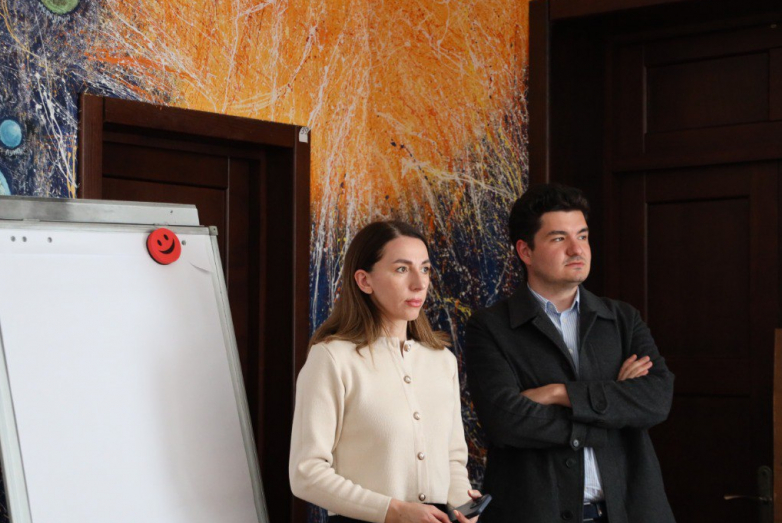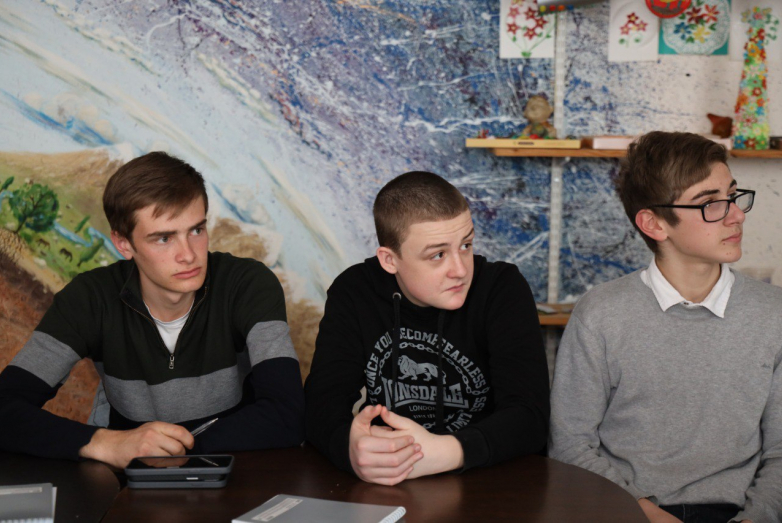One of the new projects of the WAC in 2024 is teaching students in rural schools the basics of social planning.
Alisa Khutaba
This project is a successful example of cooperation between the WAC and the State Committee for Youth and Sports. Six schools in Abkhazia will have an excellent opportunity to implement one of several presented projects. The idea, organization, and attraction of professional speakers who teach children the basics of planning and financial literacy are carried out by the WAC and covered by its Chairman, Mussa Khabalevich Ekzekov. Grant support for the implementation of the project is provided at the expense of the State Committee for Youth and Sports of the Republic of Abkhazia.
The training system includes the development and activation of knowledge, as well as the practice of applying it. Today this is one of the most effective forms of communication with a teenage group. The social activity of schoolchildren is determined by their age characteristics and the need for communication. This forms the initiative and cognitive activity of schoolchildren.
The first of a series of two-day trainings was held in the village of Adzyubzha for 9-11 graders. The moderators of the project - specialists and trainers in the field of social planning Lana Chkadua and Mate Tskvitaria introduced the participants to the basics of planning, told why it is important to gain this kind of knowledge.
“Schoolchildren will not only learn in practice how to write social projects and draw up a budget, they will also be able to implement one of the projects in each of the six schools. The first day of our work was devoted to social planning, namely, how to identify a problem from many others. We explained how to set goals and objectives, and also, using an example, showed what the project application form looks like, so that it can subsequently be filled out correctly,” noted Lana Chkadua.
From the theoretical part of the first day we moved on to the practical part of applying the acquired knowledge on the second day of the training.
The schoolchildren were divided into three teams, each of which was preparing to present its project to the commission. The task of each team is to write down project ideas, defend them and receive a grant for the implementation of one of them.
Equipping the gym with sports facilities, beautifying the surrounding area of the school by creating leisure areas in the form of benches, as well as organizing intellectual and entertaining leisure by purchasing board games - three full-fledged projects were the result of two days of work by specialists with high school students.One of the authors of the project, specialist of the WAC OSAZ department Naur Khishba noted:
“The trainings help improve teamwork skills, identify problems that children face in everyday life and find ways to solve these problems. The committee, which includes representatives of the World Abaza Congress and the State Committee for Youth and Sports, selects the best idea in terms of its timeliness and feasibility of implementation. It is very important that rural children can gather around a problem and think about solutions, and, if necessary, ask for help in funding from the state or a public organization,” he noted.
During the discussion, members of the commission chose one socially oriented project. Despite the fact that all the projects presented by the children were very promising, the choice fell on the project of the team that proposed organizing leisure facilities for schoolchildren in the school yard. They conditioned this proposal to the fact that while waiting for the school bus, children often have to spend a long time standing in the yard or sitting on the grass. If they have benches, then the wait will be comfortable.
The project manager, specialist of the WAC department for youth development and physical education, Esma Kvitsinia, noted that the school’s management and teaching staff did not interfere in the work process of writing projects.
“Involving students in project activities contributes to the development of their thinking, creativity, and gaining experience in developing and solving social problems. All three projects presented by the students met the challenges of the time, were useful and necessary. This is solely the initiative of the students, their needs and wishes. We, the Congress team and the State Committee for Youth and Sports, took a very responsible approach to organizing such a large-scale project, because this is a great opportunity for children not only to learn the basics of planning, but also to feel their importance, to show involvement in the process of creating something useful and important for everyone common cause. The opportunity for personal growth of every young person is always an exciting and important issue, and our leader Mussa Khabalevich Ekzekov always supports projects whose goal is education, development and health of the nation,” she said.
The head of the youth policy department of the State Committee on Youth and Sports of the Republic of Abkhazia, Idris Kara-Osman-oglu, noted that this was a “powerful start.”
“The members of the commission willingly supported the project, and we take responsibility for the construction of a covered gazebo with benches. It will serve as both a place for students to spend their leisure time and a bus stop. Other projects presented by schoolchildren will not be left without attention,” he noted.
The school management and training participants expressed gratitude to the organizers, represented by the WAC, for the opportunity for personal growth, as well as for providing support in the development of the village and society.


to login or register.